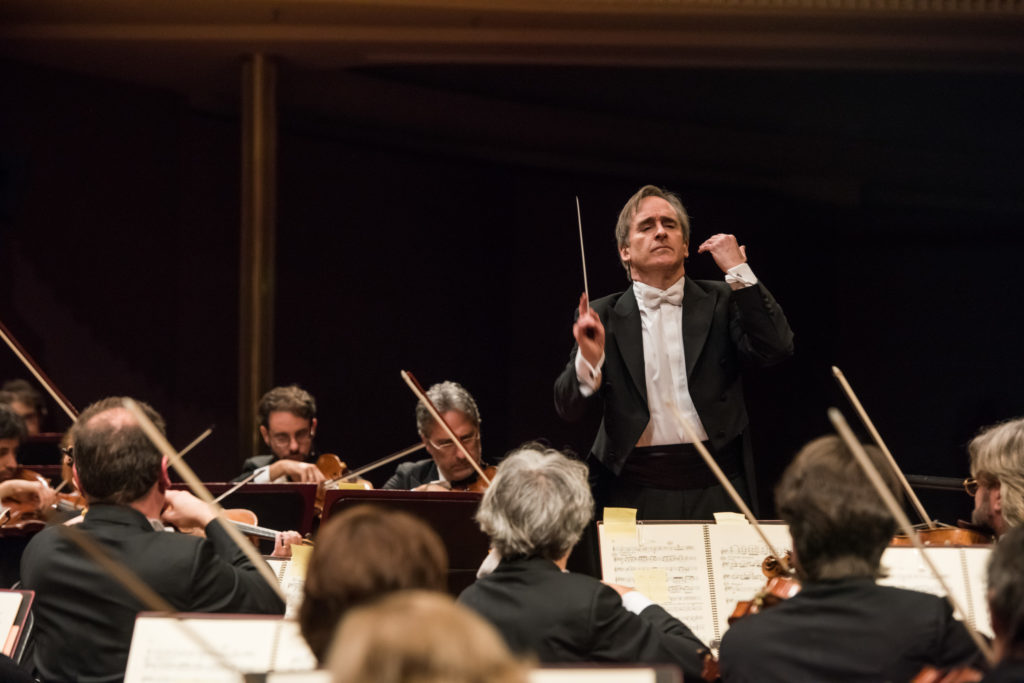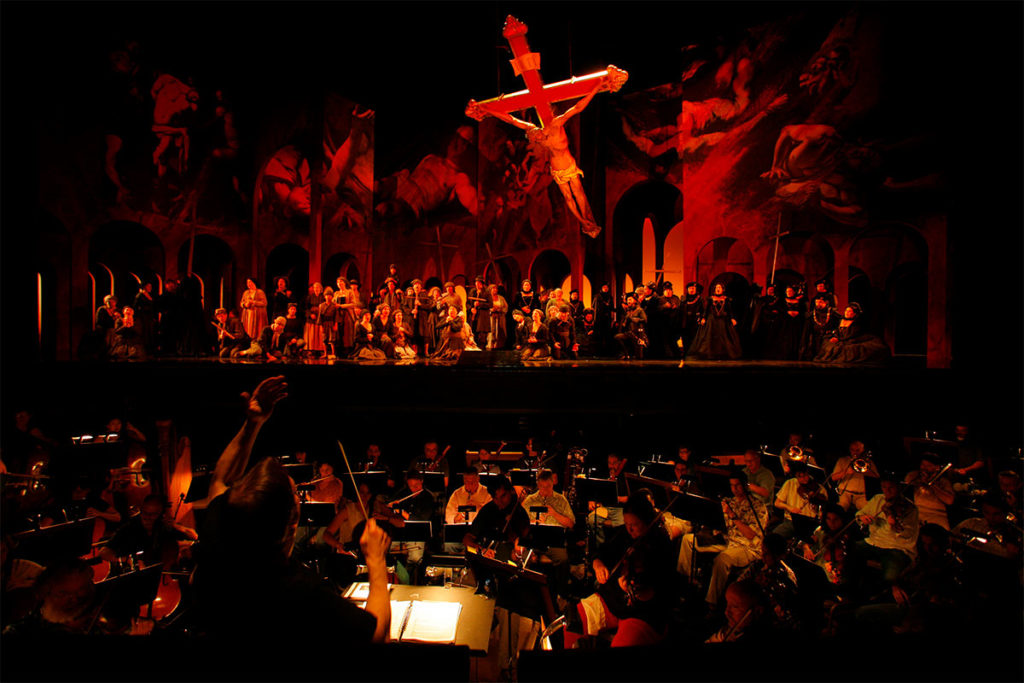When the LA Opera opened their 2018-2019 season a week ago with Verdi’s Don Carlo, it marked the 50th performance of that opera conducted by James Conlon. But don’t ask the LA Opera’s beloved conductor if he gets burned out doing operas over and over again. Frankly, he’ll tell you that he doesn’t do anything he doesn’t want to do. And the combination of Verdi and Plácido Domingo is irresistible to him. Which is a good thing since there are four more performances continuing tonight through October 14th at the Dorothy Chandler Pavilion.
“I’m excited all the time,” he says by phone just before Don Carlo‘s opening night. “One of the privileges of age is that you can never do everything you want, but you can get to the point you don’t do anything you don’t want. I’m excited about the season here. Don Carlo is a high point. Whenever it comes back, and this is the seventh time around for me, I’m just astonished every time I rehearse it or play it. I’m astonished at the depth and beauty of this opera. This is nothing like it even in Verdi’s other operas.”
Beyond his work with LA Opera (which includes Verdi’s La Traviata in June), Conlon has Verdi’s Requiem, Falstaff, Macbeth and Giovanna d’Arco on his schedule around the world this season.
“I’m very close to 500 performances of Verdi operas,” Conlon calculates. “Why can I not live without Verdi? It’s because opera is how I heard my first classical music. Literally the first was La Traviata. If anyone suggests that Verdi isn’t a serious classical composer, I’m just going to stare back at them. I feel sorry for you. Unlike many composers, his life fascinates me. And the person, the human being, fascinates me. He had a hard life for a very very long time and even when he was successful it was hard. This is a person who knows about humanity and about life from the very beginning. His music shows it and that’s why it is loved by those who love it.”
As with Don Carlo here, Domingo will be joining him for Giovanna d’Arco in Spain in July. “I’ve never seen anyone like him. That he can sing so well at his age is practically unique in the history of opera. Of course, he has so many activities and he loves to do them. It’s a gift to him and a gift to us. That passion is a great thing.”
While LA Opera takes chances by supporting new works, Conlon feels that one of the things missing in opera are companies that will do performances of new works beyond the first.
“We have to give the composers of our time the forum, any forum, whatever it is, wherever it is, for their works to be heard. Any of us would do much more if we could. I don’t think I can take on too many more missions, but if I could it would be to do the second performances of works that have had world premieres – whether symphonic or operas. There’s always a lot of excitement and buzz about a premiere and then everybody forgets about it. It’s important to have a second performance or a third. Classical music grows on second performances. If you hear it once, you’ll like it more the second time. I love Don Carlo more and more each day. If somebody would take up contemporary composers and do second performances that work could grow in stature, too.”
The stature of opera conductors could use a boost as well according to Conlon. “This is a bit of a cliche in our world today, but there are conductors and opera conductors. If you conduct opera you are slightly lower on the food chain. This to me is nonsense.”
Though he doesn’t do as much non-opera conducting in Los Angeles, Conlon conducts a wide range of music around the world that isn’t opera. His upcoming schedule includes works by Shostakovich, Haydn, Bruch and Mahler.
“Any of us who conduct opera know it is far more difficult to conduct an opera than a symphony or chamber orchestra – all of whom sit in one place and you are close to them. There is no theatre to deal with, no singers, no poetry and drama to deal with. Opera is an extremely complex form which is one of the reasons it is endlessly fascinating. That distinction was non-existent before World War II.”
If he’s concerned about respect, local audiences have embraced him whole-heartedly. “I feel that bond and I think that when people come to the opera and they realize that they will get a fully committed, passionate performance from any artist that they develop a bond. In addition I writeand I have pre-performance talks which have become immensely popular. I think it’s been an enormous part of the band that has grown with the audience and me.”
How much longer that bond will exist is uncertain. I concluded our conversation by asking Conlon what the future holds for the man who only does what he wants to. His current contract with the LA Opera runs through the 2020/2021 season.
“It’s difficult to answer that. I certainly love it here and what I’m doing right now. I can’t conceive of what I’d do. There are certainly lots of others thing I would do were I not here.”
As Verdi once said, “The artist must yield himself to his own inspiration, and if he has true talent, no one knows and feels better than he what suits him.”


